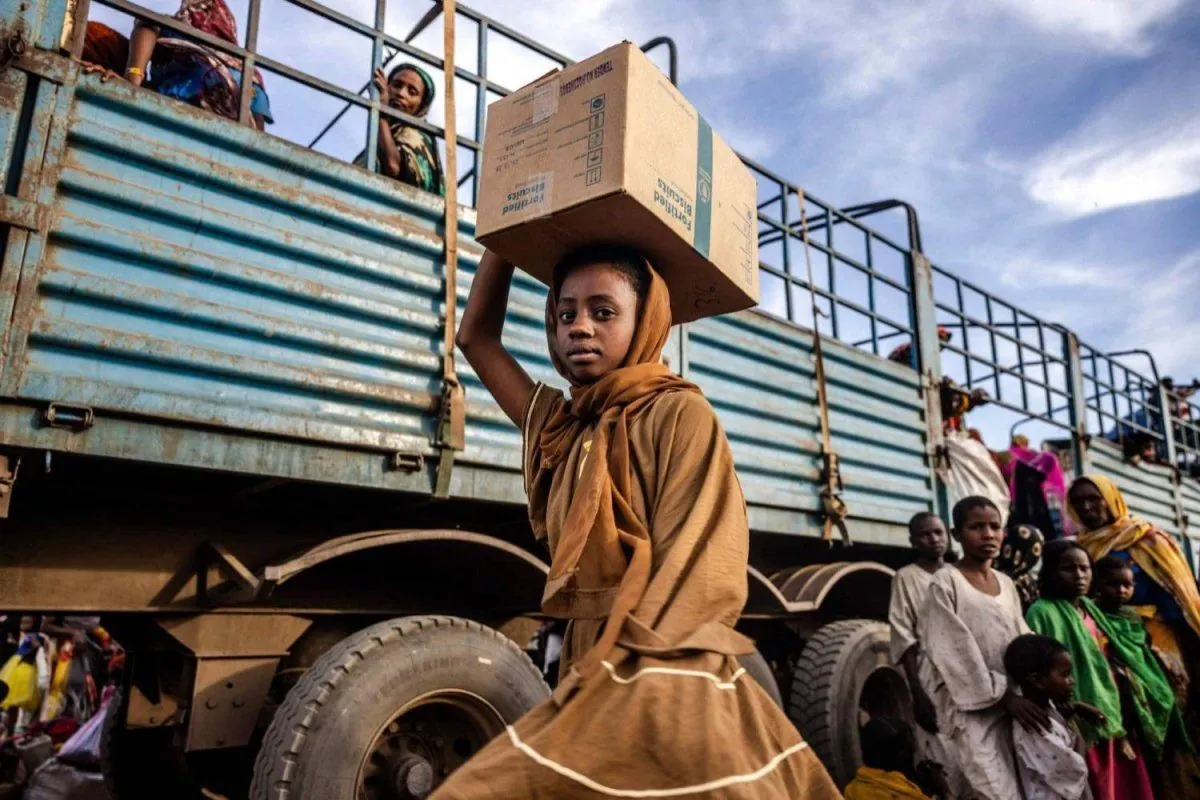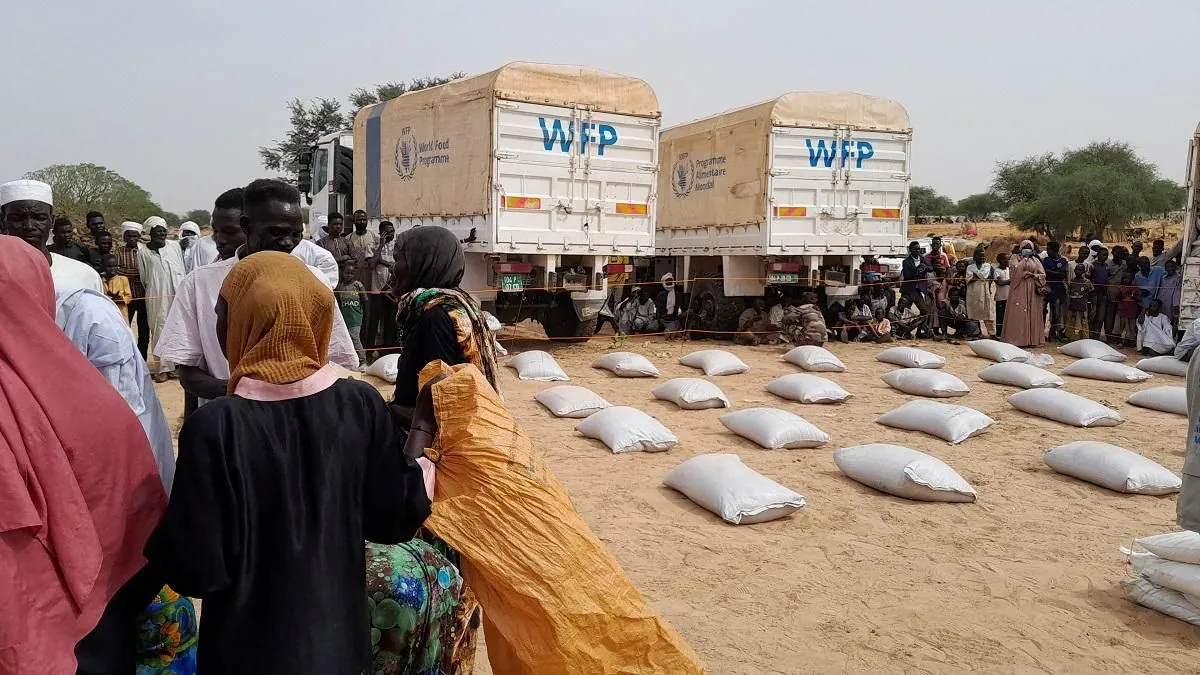Limited Aid Reaches Darfur as Sudan Imposes New Border Procedures
A fraction of aid has entered Sudan's Darfur region through Chad, despite the army's temporary lift of a ban. New government procedures have slowed deliveries, exacerbating the dire food crisis.

In a recent development, a small portion of humanitarian aid has managed to enter Sudan's conflict-ridden Darfur region through the Adre border crossing from Chad. This comes after the Sudanese army temporarily lifted a ban on aid deliveries that had been in place since February 2024.
The situation remains critical, with only 15 out of 131 trucks at the border being allowed to cross. Justin Brady, head of the UN's Office for the Coordination of Humanitarian Affairs in Sudan, reported that the Sudanese government has halted further movements until new procedures are agreed upon.
The World Food Programme (WFP) successfully delivered food supplies for 13,000 people to Kreinik, West Darfur, on August 20, 2024. This area is one of 14 locations across Sudan at risk of famine. However, the WFP states it has food ready for 500,000 people, highlighting the vast disparity between available aid and what has been permitted to enter.

The ongoing conflict in Sudan, which began in April 2023, has severely impacted food security. Over six million people in Darfur face food insecurity, with more than 25 million – approximately half of Sudan's population – affected nationwide.
The Rapid Support Forces (RSF), which control most of Darfur and the Adre crossing, have welcomed the aid deliveries. However, aid agencies have reported numerous instances of RSF looting aid trucks and warehouses.
The Humanitarian Aid Commission, aligned with the army, has outlined new procedures for aid delivery. These include the presence of Sudanese authorities and soldiers at Chadian warehouses and the border for inspections.
"We have food for 500,000 ready to move. More than six million people face food insecurity across Darfur, and more than 25 million, or about half the population, across the country."
This situation underscores the complex challenges facing humanitarian efforts in Sudan. The Darfur conflict, which began in 2003, has resulted in hundreds of thousands of deaths and displaced millions. The current crisis is exacerbating an already dire situation in a region that has long struggled with instability and food insecurity.
The international community continues to call for increased humanitarian access in Sudan. As the country grapples with the aftermath of multiple civil wars and military coups since its independence in 1956, the need for sustained and unimpeded aid delivery remains critical.


































